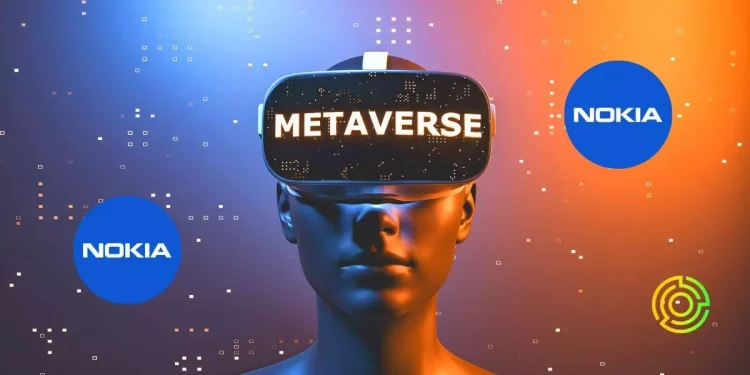Cell phones are an essential accessory for almost anyone in today’s world. It’s not just a matter of having a phone in your pocket, because nowadays these devices represent a versatile tool for communications, productivity and entertainment.
Nokia, a well-known telecommunications company, predicts that the metaverse will become an all-encompassing technology by the end of this decade, replacing smartphones as the main tool for everyday communication.
Nokia is also betting on the metaverse
“Our belief is that this device (the cell phone) will be overtaken by a metaverse experience in the second half of the decade,” Nokia’s chief strategy and technology officer, Nishant Batra, said during a recent visit to North Texas, The Dallas Morning News reports.
Focusing development efforts on this new technology will be a task that will fall primarily to Nokia’s headquarters in Cypress Waters, Dallas, where its nearly 1,700 employees will work to realize its goals in the area.
Although Nokia is mainly known for its cell phones, it is a telecommunications company that has progressively expanded into other technological areas, such as the development of facial recognition technologies for airports and the implementation of a security monitoring system for electricity grids.
https://twitter.com/NokiaNAM/status/1582465121342738433
Nokia and its vision for 2030
Now, with its sights set on 2030, the well-known company is betting on a scenario very different from the reality we know today. This scenario, according to Nokia, will be influenced by socioeconomic and geopolitical factors, the development of the industry and the specific requirements of its users.
In the consumer-oriented metaverse, from the perspective shared by the Finnish multinational, the revenues of the virtual spaces where people interact will depend on the attractiveness they offer to the consumer.
This mode of monetization will be fragmented, with growth through 2026, according to the company’s estimates, as long as the experiences available spark acceptance for multiple uses, such as games, social interaction spaces and virtual travel.
“Widespread adoption of the technology by both corporations and consumers will be critical for it to really take off, and this will also depend on the availability of affordable, ergonomic and wirelessly connected VR and AR devices,” said Nishant Batra, chief strategy and technology officer at Nokia.”
“For enterprises, which also include offices and schools in their category, there is already a wide variety of elements such as simulations and infinite workspaces, a deck of alternatives that will evolve depending on the value that companies derive from it. Batra defines this potential as a “digital drawing board for architecture and engineering firms.”
At the industrial level, the metaverse offers the option of working with digital twins and simulation environments, which could be used in factory production lines or mining operations, or for industrial training tasks, which could be taught by working with a virtual reality helmet.
Nokia emphasizes that innovations inspired by the metaverse are an important growth opportunity for businesses. Without going too far, Nokia’s Cypress Waters offices already house examples of its next-generation technology, such as its virtual reality helmets, which its users can try out to explore or work in the metaverse.
Along the lines of the aforementioned examples, they have a green screen room, where users can place themselves inside locations such as a coal mine, where the technology can detect if someone is wearing safety equipment.
By 2030, Nokia projects a world dominated by 6G connectivity, which would usher in advanced technology such as computer vision, biosensors, digital twins, and immersive virtual and augmented reality experiences.
Nokia generated more than $21 billion in sales last year, operating in more than 130 countries, with a workforce totaling nearly 88,000 people. To realize its ambitious plans, Nokia expects to make new hires over the next few years as the metaverse grows in adoption.
Nokia is preparing for that, too, Batra said. Nokia opened a cybersecurity lab at Coppell in May, in what was hailed as the first comprehensive U.S.-based lab to take 5G protection to the next level.
Follow us on our social networks and keep up to date with everything that happens in the Metaverse!.
Twitter Linkedin Facebook Telegram Instagram Google News











































